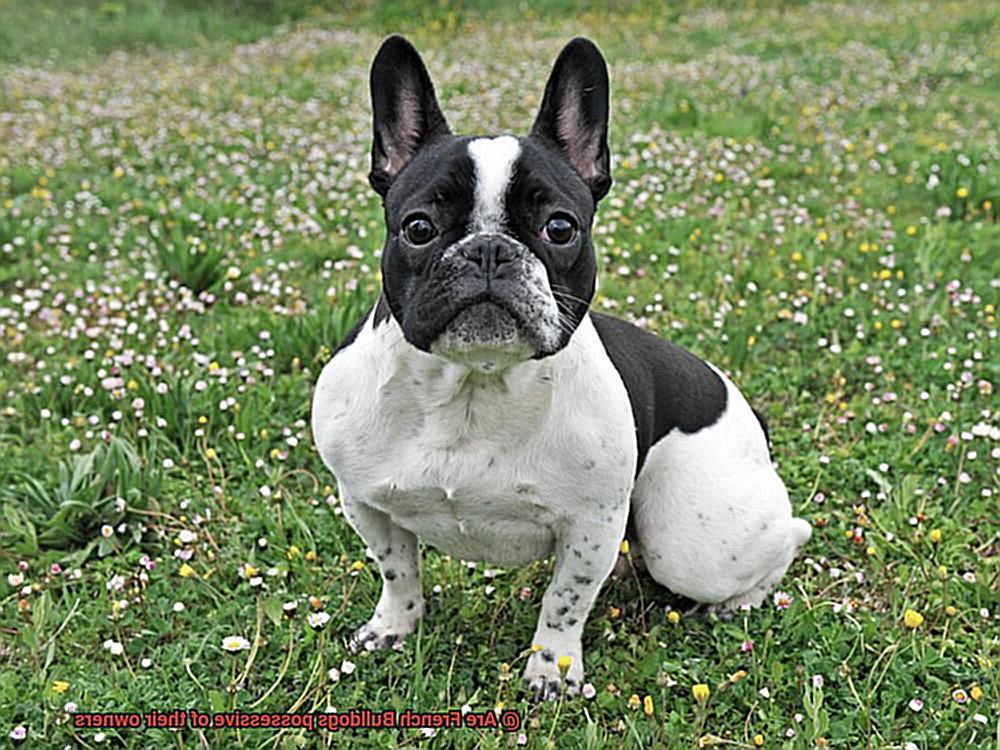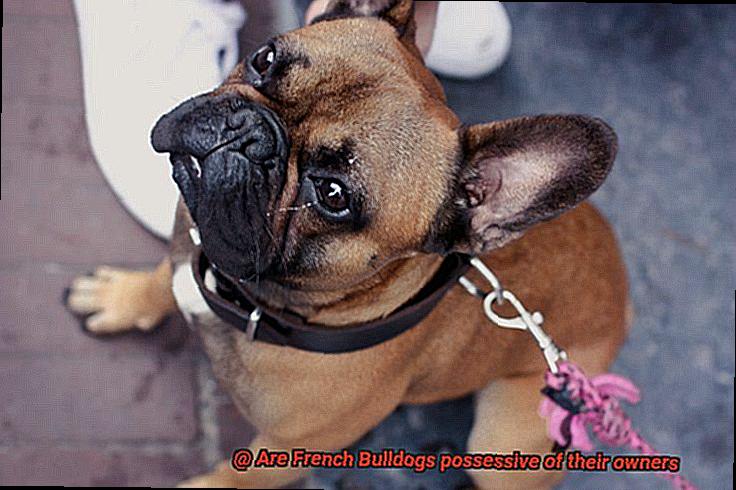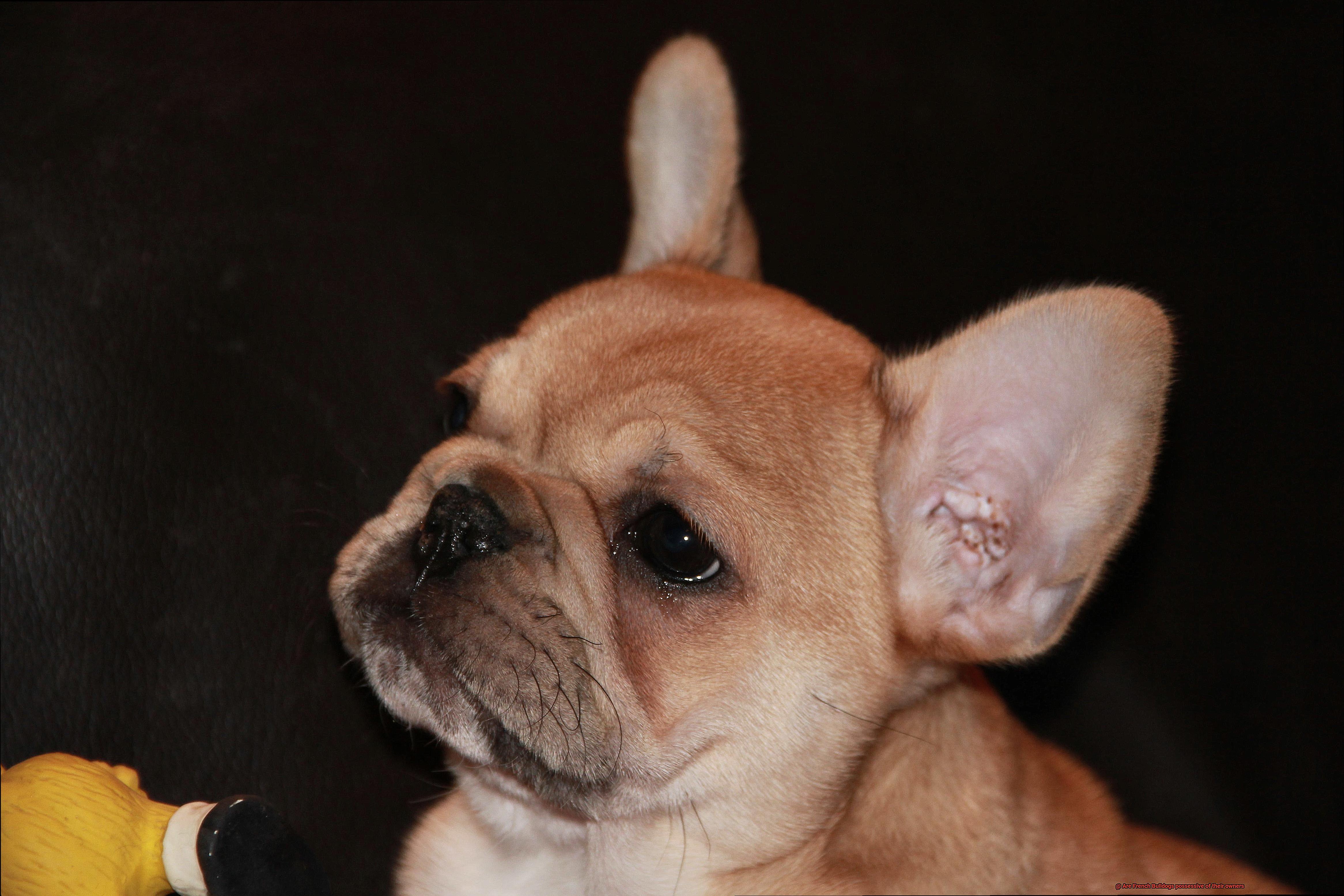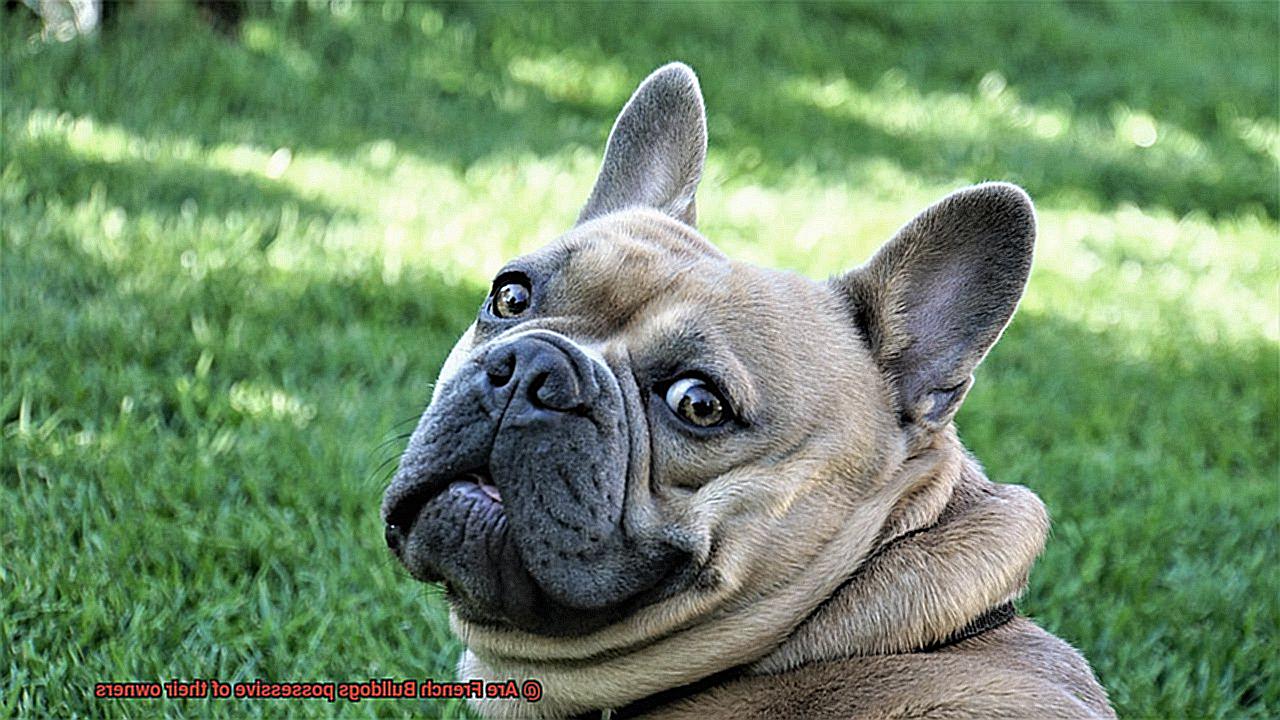Are French Bulldogs possessive of their owners?
Today, we’re about to embark on a thrilling exploration into the captivating world of our furry friends. We’ll be unraveling a fascinating question that has intrigued many: do French Bulldogs possess their owners? If you’ve ever had the pleasure of spending time with these adorable bat-eared pooches, you may have noticed their unwavering loyalty and affectionate nature. But does this devotion cross into possessiveness?
Get ready to join us on this journey as we delve deep into the unique character traits of French Bulldogs, backed by scientific insights and heartwarming anecdotes that shed light on their behavior. Brace yourself for an adventure that will reveal just how tightly these lovable canine companions hold onto their humans.
So, grab your favorite cup of joe and sink into a cozy chair because we’re about to navigate through the heartwarming and sometimes surprising world of French Bulldog possessiveness.
Prepare to be enchanted by their endearing antics while learning about the origins of their protective instincts. We’ll also address common misconceptions and offer tips for fostering a healthy and balanced relationship with your French Bulldog.
These pocket-sized bundles of love certainly have a reputation for being devoted family dogs, but what does it truly mean for them to be possessive? Is it due to their unique genetic makeup or a combination of environmental factors? Fear not, as we’ll explore all this and more, highlighting scientific research along with personal experiences that will answer your burning questions about French Bulldog possessiveness.
Whether you’re already a proud owner, contemplating adding a French Bulldog to your pack, or simply fascinated by the extraordinary bond between humans and their four-legged friends, this blog post is tailor-made for you.
Join us as we dive headfirst into the captivating world of French Bulldogs and unlock the secrets behind their undeniably possessive nature. Remember, French Bulldogs may be small in size, but their affection and loyalty are immeasurable.
Stay tuned for upcoming sections packed with intriguing facts, charming anecdotes, and practical advice that will undoubtedly deepen your understanding and appreciation for these remarkable furry companions. Let the captivating journey into the possessive world of French Bulldogs commence.
Are French Bulldogs Possessive of Their Owners?
Contents
- 1 Are French Bulldogs Possessive of Their Owners?
- 2 Causes of Possessiveness in French Bulldogs
- 3 Signs of Possessive Behavior in French Bulldogs
- 4 Establishing Clear Boundaries and Rules for French Bulldogs
- 4.1 Setting Consistent Boundaries:
- 4.2 Physical Boundaries:
- 4.3 Behavioral Boundaries:
- 4.4 Positive Reinforcement Training:
- 4.5 Reward Good Behavior:
- 4.6 Consistency and Patience:
- 4.7 Socialization:
- 4.8 Expose Them Early:
- 4.9 Professional Assistance:
- 4.10 Exercise and Mental Stimulation:
- 4.11 Engage in Physical Activities:
- 4.12 Mental Stimulation:
- 4.13 Seek Professional Help if Needed:
- 5 Training and Socialization for French Bulldogs
- 6 Separation Anxiety and Its Role in Possessiveness
- 7 Techniques to Address Possessiveness in French Bulldogs
- 8 Professional Help for Dealing with Possessive Behavior
- 9 Conclusion
French Bulldogs, with their adorable squished faces and affectionate demeanor, are often seen as lovable family pets. However, some French Bulldogs can display possessive behavior towards their owners. In this blog post, we will explore the reasons behind this behavior and provide practical tips on how to manage possessiveness in your furry friend.
The Origin of Possessiveness:
French Bulldogs have a rich history as companion dogs. Originally bred to be lap dogs for lace workers, they developed a strong attachment to their owners. This history of providing comfort and companionship has ingrained in them a sense of loyalty and protectiveness towards their humans.
Territorial Instinct:
French Bulldogs can be quite territorial, considering both their homes and owners as part of their pack. This territorial instinct can manifest as possessiveness towards their humans. They may become protective and exhibit guarding behaviors when they perceive a threat to their pack or territory.

Attention Seekers:

French Bulldogs thrive on human interaction and affection. They have a deep need for attention and can become clingy towards their owners. To ensure they remain the center of attention, they may display possessive behavior as a way to assert dominance and demand constant attention from their loved ones.
Managing Possessiveness:
To address possessive behavior in French Bulldogs, it is essential to establish clear boundaries and provide consistent training from an early age. Socialization plays a significant role in helping them become comfortable around other people and animals, reducing the likelihood of possessive tendencies.
Engaging in activities that promote independence and mental stimulation, such as puzzle toys or obedience training, can also help alleviate possessive tendencies in French Bulldogs. These activities redirect their focus and prevent them from becoming overly reliant on their owners.

Seeking Professional Help:
If possessiveness becomes problematic or escalates to aggression, it is recommended to consult a professional dog trainer or behaviorist. They can provide personalized guidance and training plans to address the specific needs of your French Bulldog.
Causes of Possessiveness in French Bulldogs

French Bulldogs are known for their lovable and affectionate nature, but sometimes they can display possessive behavior towards their owners. Understanding the causes of this behavior can help you address it effectively. Here are the main factors that contribute to possessiveness in French Bulldogs:
Breeding and Genetics:
French Bulldogs have a history of being bred as companion dogs, which can make them more prone to possessive behavior. Additionally, certain genetic factors may play a role in the development of possessiveness.
Lack of Socialization:
Proper socialization is crucial for French Bulldogs during their early stages of life. If they are not exposed to different people, animals, and environments, they may become overly attached and possessive of their owners as they grow older.
Overprotective Nature:
French Bulldogs have a natural instinct to protect their families. When this protective instinct is not properly managed or trained, it can manifest as possessiveness towards their owners.
Inconsistent Training:
Inadequate or inconsistent training can contribute to possessive behavior in French Bulldogs. If they are not taught proper boundaries and obedience commands, they may develop possessive tendencies.
Lack of Mental and Physical Stimulation:
French Bulldogs are intelligent and active dogs that require mental and physical stimulation to prevent boredom. A lack of these activities can lead to frustration, anxiety, and subsequently possessiveness towards their owners.
Separation Anxiety:
French Bulldogs are prone to separation anxiety, which can result in possessive behavior. When left alone for extended periods, they may become overly attached to their owners and exhibit possessiveness as a result.
Past Trauma or Negative Experiences:
Previous traumatic experiences or negative interactions with other dogs or humans can contribute to possessiveness in French Bulldogs. Such experiences may make them more wary and protective of their owners.
It’s important to remember that not all French Bulldogs will display possessive behavior, and each dog is different. However, being aware of these potential causes can help you address and manage possessiveness issues effectively. In the next section, we will explore the signs of possessiveness in French Bulldogs and provide tips for addressing this behavior. So, stay tuned.
Signs of Possessive Behavior in French Bulldogs
Some French Bulldogs may exhibit possessive behavior, which can be concerning for their owners. Understanding the signs of possessiveness is crucial for addressing and managing this behavior effectively. Here are some common signs to look out for:
- Excessive Attachment: Possessive French Bulldogs may constantly follow their owners around, seeking attention and physical contact. While it may seem endearing at first, this behavior can become overwhelming and interfere with daily activities.
- Resource Guarding: French Bulldogs with possessive tendencies may become protective over their food, toys, or bedding. They may display aggression, such as growling or biting, when someone approaches these items.
- Territorial Behavior: Possessive French Bulldogs may become defensive when someone enters their territory, whether it’s their home or their owner’s personal space. This can include excessive barking, lunging towards strangers, or nipping to establish boundaries.
- Separation Anxiety: Possessive French Bulldogs may exhibit clingy behavior and become anxious or distressed when separated from their owners. They may whine excessively, pace, or engage in destructive chewing when left alone.
- Jealousy: Possessive French Bulldogs may show signs of jealousy towards other pets or people who receive attention from their owners. They may try to interrupt interactions or display attention-seeking behaviors.
It’s important to note that possessive behavior in French Bulldogs can be influenced by genetics, early socialization experiences, and the owner’s behavior. Addressing possessiveness requires consistency in training, providing mental stimulation, and addressing any underlying anxiety or fear issues.
Establishing Clear Boundaries and Rules for French Bulldogs
Without clear boundaries and rules, they can develop possessive behavior towards their owners. As a responsible owner, it is crucial to establish these boundaries early on to prevent any potential issues. In this article, we will explore effective strategies to establish clear boundaries and rules for your French Bulldog, ensuring a harmonious and balanced relationship.
Setting Consistent Boundaries:
Consistency is key when it comes to setting boundaries for your French Bulldog. Be firm but fair in establishing a set of rules that align with your lifestyle and preferences. Consider both physical and behavioral boundaries:
Physical Boundaries:
- Decide if you want your French Bulldog on furniture or in specific rooms.
- Use baby gates or closed doors to designate areas where your dog is not allowed.
Behavioral Boundaries:
- Train your French Bulldog not to jump on people or snatch food.
- Teach them to wait patiently when you’re eating or at the door before going outside.
Positive Reinforcement Training:

Using positive reinforcement techniques is an effective way to teach your French Bulldog acceptable behavior:
Reward Good Behavior:
- Praise and reward your dog with treats or affection when they follow the established rules.
- Use a clicker to mark desired behaviors and reinforce positive habits.
Consistency and Patience:
- It may take time for your French Bulldog to understand and adjust to the rules.
- Stay patient, consistent, and avoid confusing mixed messages.
Socialization:
A well-socialized French Bulldog is less likely to exhibit possessive behaviors:
Expose Them Early:
- Introduce your French Bulldog to different people, animals, and environments from a young age.
- Gradually increase exposure to various situations to boost their confidence.
Professional Assistance:
- Consider attending obedience training classes or working with a professional dog trainer.
- They can provide guidance on socialization techniques and help address possessive behavior.
Exercise and Mental Stimulation:
Regular exercise and mental stimulation are essential for preventing possessive behavior:
Engage in Physical Activities:
- Take your French Bulldog for daily walks, play fetch, or engage in interactive games.
- Provide outlets for their energy to prevent boredom or frustration.
Mental Stimulation:
Seek Professional Help if Needed:
If possessive behavior becomes a serious issue despite your efforts, do not hesitate to seek help from a professional dog behaviorist or trainer. They can provide personalized guidance and assistance in addressing and modifying possessive behavior in French Bulldogs.
Training and Socialization for French Bulldogs
Don’t worry, though. With the right training and socialization, you can nip these behaviors in the bud and foster a well-behaved and balanced canine companion. Let’s dive into some expert tips that will help you unleash the best in your French Bulldog.
Consistency is Key:
French Bulldogs are intelligent little beings who thrive on routine. Establish clear boundaries and rules early on, and stick to them. Whether it’s not allowing your Frenchie on the furniture or teaching them to wait patiently before mealtime, consistency is key to preventing possessiveness.
Positive Reinforcement:
Gone are the days of harsh training methods. Positive reinforcement, such as treats, praise, and playtime, will motivate your Frenchie to learn and obey commands. Remember, a happy pup is a well-behaved pup.
Basic Obedience Training:
Teaching your French Bulldog basic commands like sit, stay, come, and down not only enhances their obedience but also establishes you as the pack leader. This sense of leadership is crucial in curbing possessive behavior.
Socialization: The More, The Merrier.
Introduce your Frenchie to a wide range of people, animals, environments, and situations from an early age (between 3 to 14 weeks). Encourage positive interactions with strangers by rewarding calm behavior. Organized puppy classes and playdates with other well-behaved dogs can provide valuable socialization opportunities.
Explore New Horizons:
Expose your Frenchie to various environments and situations to boost their confidence and reduce possessiveness. Take them on walks in bustling areas, gradually exposing them to different noises and distractions. Trips to parks, cafes, and pet-friendly stores can also help them feel at ease in new surroundings.
Exercise and Mental Stimulation:
A tired Frenchie is a happy Frenchie. Regular exercise, both physical and mental, is essential for preventing possessive behaviors. Engage your pup in games, puzzle toys, and training sessions that challenge their minds and keep them physically active.
Seek Professional Help if Needed:
If possessive behaviors persist despite your best efforts, don’t hesitate to seek professional assistance. A qualified dog trainer or behaviorist can assess the root cause of the possessiveness and provide tailored strategies to modify the behavior effectively.
Separation Anxiety and Its Role in Possessiveness
French Bulldogs, known for their charming personalities and affectionate nature, are prone to separation anxiety. This common issue can contribute to possessive behaviors towards their owners. In this blog post, we will explore the connection between separation anxiety and possessiveness in French Bulldogs, providing insights and tips for managing these behavioral challenges.
The Link Between Separation Anxiety and Possessiveness:
French Bulldogs have a strong attachment to their owners, making them highly susceptible to separation anxiety. When left alone, they may exhibit signs of distress such as excessive barking, destructive chewing, or indoor accidents. This anxiety stems from their fear of being separated from their beloved owners.
Understanding Possessive Behaviors:
Possessiveness in French Bulldogs is a result of their deep emotional bond with their owners. They feel the need to protect and guard them at all times, leading to behaviors like growling, snapping, or guarding against perceived threats. It’s important to remember that possessiveness is not aggression but rather an expression of anxiety and a desire for security.
Managing Separation Anxiety and Possessiveness:
- Gradual Desensitization: Help your French Bulldog become comfortable with being alone by gradually increasing the time apart. Start with short intervals and gradually extend them over time.
- Mental Stimulation and Physical Exercise: Engage your furry friend’s mind and body through interactive toys, puzzles, and regular exercise. This helps alleviate anxiety and channels their energy positively.
- Teaching Independence: Encourage independence by rewarding calm behavior when alone and gradually reducing constant attention or physical contact. Build confidence through positive reinforcement training techniques.
Creating a Safe Environment:
Establish a routine that includes designated alone-time for your French Bulldog. Provide a cozy space with comfortable bedding and engaging toys to keep them occupied during periods of separation.
Seeking Professional Help:
For severe cases of separation anxiety and possessiveness, consult a veterinarian or animal behaviorist. They can provide tailored guidance, techniques, and potentially prescribe medications to manage these behavioral challenges effectively.
Techniques to Address Possessiveness in French Bulldogs
French Bulldogs are known for their lovable and affectionate nature, but they can also be prone to possessiveness. In this blog post, we will explore various techniques that can be used to address possessiveness in French Bulldogs.
By employing positive reinforcement training, counterconditioning, desensitization, establishing clear boundaries, socialization, and seeking professional help when necessary, you can help your French Bulldog overcome possessive behavior and foster a healthier relationship with them.
Positive Reinforcement Training:
Positive reinforcement training is an effective technique to address possessiveness in French Bulldogs. This involves rewarding your dog with treats, praise, or toys when they exhibit non-possessive behavior.
For example, if your French Bulldog willingly lets go of a toy or food item without becoming possessive, immediately reward them with a treat and verbal praise. This helps reinforce the desired behavior and discourages possessive tendencies.
Counterconditioning:
Counterconditioning involves changing your French Bulldog’s emotional response to situations that trigger possessive behavior. For instance, if your dog becomes possessive over their food bowl, you can gradually desensitize them by approaching the bowl while offering high-value treats. This helps them associate your presence with something positive rather than feeling threatened or possessive.
Desensitization:
In addition to counterconditioning, desensitization can also be helpful in addressing possessiveness. This technique involves gradually exposing your French Bulldog to situations that typically trigger possessive behavior, starting with low-intensity scenarios and gradually increasing the intensity over time.
For example, if your dog becomes possessive over their bed, you can start by simply walking past it without any reaction. Gradually, you can move closer or even sit near the bed while rewarding calm behavior.
Establish Clear Boundaries:
Establishing clear boundaries and rules for your French Bulldog is crucial in preventing possessiveness from developing or worsening. Consistency is key when setting boundaries, so make sure everyone in the household follows the same rules.
For example, if your dog is not allowed on furniture, enforce this consistently and do not make exceptions. By establishing clear boundaries, your French Bulldog will learn to respect personal space and possessions.
Socialization:
Proper socialization plays a vital role in addressing possessiveness in French Bulldogs. Exposing your dog to various people, animals, and environments from an early age helps them become more confident and less possessive.
It is important to expose your French Bulldog to different situations gradually and positively reinforce calm and non-possessive behavior during these interactions. Positive experiences with others can help reduce possessive tendencies and promote a more balanced temperament.
Professional Help for Dealing with Possessive Behavior
However, with the help of professional trainers and behaviorists, it is possible to manage and overcome this behavior effectively. In this article, we will explore different professional methods available for addressing possessive behavior in French Bulldogs.
Seek the assistance of a professional dog trainer or behaviorist:
Professional trainers and behaviorists who specialize in working with possessive dogs can provide invaluable guidance. They have the knowledge and experience to identify the root causes of possessiveness and develop a customized training plan to address it.
Positive reinforcement techniques:
Professional trainers use positive reinforcement techniques to teach French Bulldogs appropriate behaviors and redirect possessive tendencies. By rewarding desired behaviors, such as releasing or giving up objects when instructed, dogs learn that cooperation is rewarded.
Desensitization:
Desensitization involves gradually exposing the dog to situations that trigger possessive behavior in a controlled manner. This technique helps the dog learn to associate these situations with positive experiences rather than possessiveness. Professional trainers can guide owners through this process, gradually increasing exposure while rewarding calm behavior.
Address underlying fears or anxieties:
In some cases, possessive behavior may be rooted in underlying fears or anxieties. A professional behaviorist can help identify and address these issues through behavior modification techniques or even medication if necessary.
Consistency at home:
Along with professional help, it is crucial for owners to practice patience, consistency, and positive reinforcement at home. Setting clear boundaries, avoiding triggers, and providing mental and physical stimulation are key factors in managing possessive behavior.
Conclusion
In conclusion, French Bulldogs have a reputation for being possessive of their owners.
They form strong bonds and can become quite attached. This loyalty can manifest in behaviors such as following their owners around the house, demanding attention, and even displaying jealousy towards other pets or people who try to get too close.
It’s important for owners to establish boundaries and provide consistent training to ensure that their French Bulldog feels secure without becoming overly possessive.




